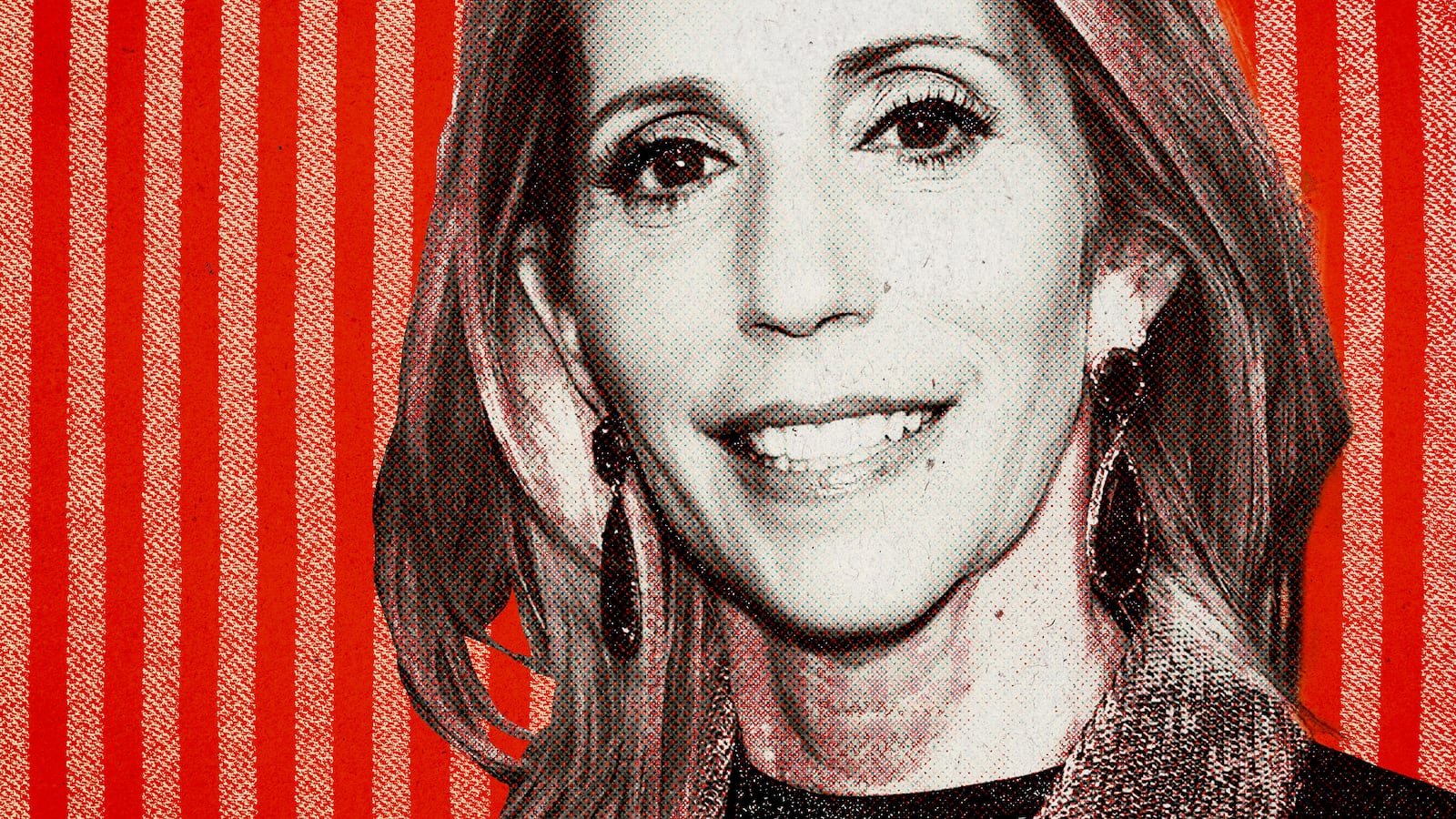Dana Bash has hit back at critics of her interview with Vice President Kamala Harris, saying she knows it was “just right” because it “p**sed off” both the left and the right.
In an interview with The Daily Beast, CNN’s chief political correspondent acknowledged that last Thursday’s primetime sit-down with Harris and running mate Tim Walz drew brickbats over everything from Bash’s opening line about what Harris would achieve in her first day in office, to not asking follow-up questions at key moments—including letting Harris shut down a question on Trump’s attacks on her racial identity.
“The fact that nobody in their entrenched camps was happy makes me think that I probably was in just about the right place,” Bash told The Daily Beast. “With everything I do, I think of like 2,000 things that I would have said or done differently.
“My job wasn’t to nail her,” Bash added. “My job was to illuminate and to get an understanding of of her positions, of her sensibility, of her approach and of her goals.
“The right wing was super p**sed off at me because they said I was too soft on her, and the left wing was super p**sed off because they thought I was too hard on her, or used Trump talking points, which I don't even really understand, because the questions to ask her are the questions to ask her. Whether or not Trump uses them or not—they are what they are.”
The interview drew 6.3 million viewers, according to Nielsen’s final same-day ratings. It was CNN’s best 9 p.m. hour since the June 27 presidential debate co-moderated by Bash, which averaged more than 9.5 million viewers on the network.
Bash talked in detail about the interview and what she said is sexism facing female news anchors in an interview to promote her new book, America’s Deadliest Election: The Cautionary Tale of the Most Violent Election in American History (HarperCollins).
Bash’s book, co-authored with David Fisher (who has also co-authored books with Bill O’Reilly and Dan Abrams), recounts the violence and political chaos that led to the contested 1872 gubernatorial election in Louisiana—with accounts of election interference and political violence that echo with today—told through the lens of Louisiana Governor Henry Warmoth.
The book’s publication comes just as Bash herself finds herself under scrutiny over the Harris interview, in which Bash chose not to press Harris further after the vice president refused to respond to Trump’s attacks on her racial identity.
“Same old, tired playbook,” Harris said. “Next question, please.”

Minnesota Gov. Tim Walz, left, and Vice President Kamala Harris, center, are interviewed by CNN’s Dana Bash at Kim’s Cafe in Savannah, Georgia, on August 29, 2024.
Will Lanzoni/CNN“Her non-answer was such an answer that spoke volumes that I didn't really feel like there was much of a follow-up needed,” Bash said.
Bash acknowledged why she needed to ask Harris the question—the vice president hadn’t done an interview since becoming the presidential nominee, and “it was a weird thing that Trump did” at the National Association of Black Journalists convention when he suggested Harris had “happened to turn Black.”
Bash said Harris’ decision not to engage with Trump’s slur provided a glimpse into her personality, and how she intends to counter such attacks.
“How she handles it—because unfortunately, it’s only going to get worse because of the nature of politics, and it already is—is such a window into her; not a window into her gender, it’s not a window into her race, it’s a window into how she approaches an attack, a challenge, how she approaches these things as a leader,” Bash said.
Bash accepts not asking a follow-up was “an example of the 700 things that I could have done differently” with the interview. “But, to me, the way I took her answer was that she was trying to defuse it by not engaging with it, which I understand.”

Norah O'Donnell arrives on the red carpet for the annual White House Correspondents' Association Dinner in Washington, U.S., April 30, 2022.
Tom Brenner/ReutersBash moderates State of the Union—on alternate weeks with Jake Tapper—and hosts CNN’s daily show Inside Politics. She is one of five women who sit in the coveted Sunday show anchor chair. But the most traditionally prestigious anchor position, the networks’ nightly news broadcasts, will be all-male after the election when Norah O’Donnell’s leaves CBS Evening News. Bash suggested O’Donnell was the victim of sexism, saying she worked harder than her consistently higher-rated NBC and ABC rivals.
“I think Lester Holt and David Muir are fantastic journalists, and great anchors of the evening news,” Bash said. “However, I defy you to compare the way that Norah worked her tail off with any of the other anchors, not just the ones who are there now, but maybe even historically.”
O'Donnell “works so hard, she always does the extra—and she is the mother of three teenagers,” Bash said. “She does it all because she loves it. That’s her journalism.”
Women in news have to work “10 times more than men in order to prove ourselves,” Bash said, and O’Donnell “does it like she’s Ginger Rogers, backwards and in heels.”
The achievements of anchors like Katie Couric, O'Donnell, Jane Pauley, and Bash herself have shown how far female anchors have come in the fight for equality with their male counterparts, Bash said. “Of course we have, but we’re not there yet, and not even close, and I long for the day when that happens.”
Aging on screen has improved slightly for women—and there was now a “sisterhood” among women in the news industry, Bash claimed.
“It’s crazy. That has changed,” Bash said. "You can get older on television now as a woman—not all, not totally, but older, though still not the same as men. I feel like men can stay on TV forever, or in any job forever. It has gotten better for women, but we’re not there yet. Also, there is a sisterhood among women. My mom [Francie Weinman Schwartz] studied journalism at Northwestern, and then she was in local news. She was among the first women in the newsroom, and it was brutal. Women were brutal to each other because they were competing for that one slot. Right now, there are so many of us, and we have a commonality with what we do—especially now that many of us have kids and families, and we’re balancing it all. We definitely connect with one another, which is nice.” (Bash has a 13-year-old son with her ex-husband John King, CNN’s chief national correspondent.)

Cover of Dana Bash and David Fisher's book, 'America's Deadliest Election.'
Courtesy HarperCollinsBash declined to address Megyn Kelly’s attacks on her CNN colleague Kaitlan Collins. Kelly attacked Collins as “boring” and a “cold-hearted b***h” last week after Collins appeared on Bill Maher’s “Club Random” podcast and defended CNN. (Kelly acknowledged that she didn’t know Collins personally.)
“I'm gonna give you a Kamala Harris answer on this and say that’s clickbait,” Bash said firmly. “Next question.”
In writing about Henry Warmoth for her new book, “the love of him and the hate for him, the passion that people felt both pro and con, is eerily similar to what we see for Donald Trump,” Bash said.
“I think the answer to the question of whether Donald Trump is a threat to democracy is what happened on January 6, 2021, and the months leading up to it,” Bash added. “And what he was a threat to, certainly at the time that we witnessed, and what he was a part of preventing, was a peaceful transfer of power. Whether you call that a threat to democracy or to a democratic process within the broader democratic system—that’s up to you to decide.”







